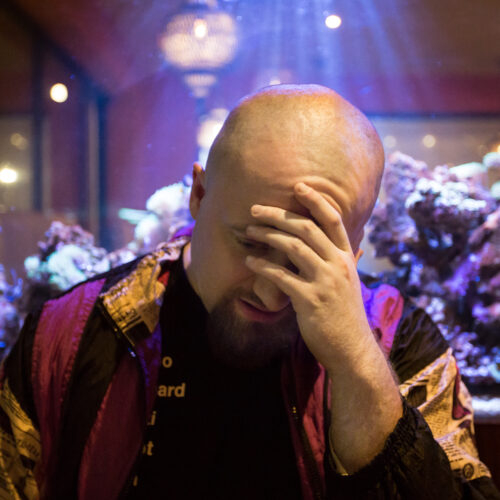
Who is Acting? Tightening Up Agency in Storytelling.
Stories, the ancient Greek philosopher Aristotle argued ‘The Poetics’, his book on the art of storytelling, are based in imitation. Many animals imitate. Birds imitate the sounds they hear, and relay them back to us. Mozart had a pet starling for three years that he would hang out with an exchange tunes, and some of these tunes even made their way into Mozart’s music (see Elena Passarello’s book Animals Strike Curious Poses). Great apes are enthusiastic mimics. And we human beings just love imitation. We imitate through song and speech, through making images, and through telling stories. Visual arts, music and literature are all based, to some degree, in this human love of imitation.
So why am I writing about imitation? Because imitation is central to storytelling. ‘Those who imitate,’ Aristotle says of storytellers, ‘imitate agents.’
Read that line a few times: those who imitate, imitate agents. It is an important insight. In other words, stories imitate, or represent, people who are acting. What makes a story is that it involves a person, a character, who is doing something. Stories (most stories at least) are about agents who have consciousness, and who are acting out of a complex bunch of desires and aversions, out of the things they do and do not want.
- ‘Alex’ is not a story. There is a person here, but no action.
- ‘Alex wants to cross the river in her canoe (desire), but she doesn’t want to be eaten by a crocodile (aversion)’ is a story. Or at least, it is the beginning of one. There is both a person, and an action.
In other words, the heart of any story is somebody (or a group of somebodies), and the things that they do, their actions, in response to their desires and aversions. If you keep the focus on this, you will be able to tell much more powerful stories.
*
The agents of your stories will often be people. But not always. They may be stand-ins for people, for example monsters, aliens or fantasy beings. They may be other creatures with some degree of consciousness, for example a sulky toad, or an angry chimpanzee. But whoever your agents are, what makes what you are telling a story is a focus on the agency of these conscious beings. As long as you focus on agency, you will keep the reader’s interest. If you lose this agency, you risk losing this interest.
*
Although this seems like a really simple point, it is one that is surprisingly easy to lose sight of. Look at the following story.
- The crocodile slid into the river.
- Alex’s eyebrows shot up in horror.
- The hot sun beat down on her.
- Alex’s pores started to sweat.
- The river churned in anger at the crocodile’s approach.
- The churning water made the canoe rock from side to side.
What is wrong with this story? If you look more closely at the agents (the things that are performing the action) in each of these sentences, you will see that the focus is not on the story’s main protagonists — Alex and the Crocodile. We can break down the list of agents, sentence by sentence.
- The crocodile
- Alex’s eyebrows (not Alex)
- The sun
- Alex’s pores (not Alex)
- The river (which is apparently angry!)
- The water
In fact, Alex is not doing anything in any of these sentences. In sentence one, the crocodile is the star of the show. Fair enough. But in sentence two, Alex’s eyebrows have a starring role, which is a bit weird. In sentence three, the sun takes the stage, and does its thing. This is followed by Alex’s pores (which is also a bit weird). Finally, the river has a couple of things to do, just to help the story along. But we don’t see Alex doing anything at all.
Now look at how you could rewrite this.
- The crocodile slid into the river.
- Alex watched it swim towards her.
- She could feel the heat of the sun.
- She wiped the sweat from her eyes.
- The crocodile started to circle. It churned up the water.
- Alex stuck out her oar, desperate to stabilise the canoe.
This version feels much closer to Alex’s experience. Why? Because we have put Alex’s agency, and the crocodile’s agency (which also matters), right at the heart of the story — precisely where they belong.
We can break this new version down again, to see who is doing what. In other words, we can analyse who the agents of the verbs are in each sentence. And we get a very different picture.
- The crocodile
- Alex (and the crocodile)
- Alex
- Alex
- The crocodile
- Alex
Suddenly, Alex is right back where she belongs, at the centre of the story. We have Alex and the crocodile, facing each other sentence by sentence, in a life-and-death stand-off. Isn’t that more satisfying?
*
It’s very common, when in the heat of writing, to try and fancy things up by using turns of phrase that seem somehow ‘literary’. So we might write ‘her pores started to sweat,’ or ‘her eyebrows shot up in horror,’ or ‘the river churned in anger.’ But the trouble with this is that in all of these examples, agency and consciousness are given to things we wouldn’t normally think of as having agency and consciousness (pores, eyebrows and rivers).
Sometimes this can be okay. There are no cast-iron laws in writing (other than the law that there are no cast-iron laws). Maybe you want to give the feeling of the river as something possessed by a spirit or a consciousness (‘I think that the river Is a strong brown God,’ T.S. Eliot once wrote). Or maybe you want to stress the involuntary nature of the eyebrow movement, in which the eyebrows move as if by themselves. But when this blurring of agency becomes a habit, when it happens in every single sentence, or in most of your sentences, you will find your writing becomes much less immediate, and the story begins to go out of focus.
When that happens, it can be useful to remind yourself that at the heart of a story, as Aristotle says, are agents who have consciousness, and who are acting out of their desires and their aversions. Because this is what your readers are really interested in: they don’t want to know about what Alex’s pores are going to do, what her eyebrows are going to do, or what the sun is going to do. They want to know what the crocodile is going to do, and how Alex is going to get herself out of the terrible, terrible fix she is in.
Exercise
Try this as an editing exercise. Go through your story sentence by sentence, and for each sentence with an active verb like ‘beat’ or ‘slide’ or ‘shoot’, ask yourself who is the agent of this verb? If the answer is not one of the characters in your stories, but instead a body part, or an inanimate object, think about rewriting that sentence to return the agency to where it belongs.
|
|







I really enjoyed this! Just the kind of inspiration needed to day. Thank you.
Great advice, thank you. I’ve just used it on an exercise I was working on, and it immediately sounds clearer.
Ah yes, totally get it, this will be so useful
Thank you. I’m going to work on paragraphs in my story that are mostly descriptive, and see if I can make them more about how the character responds to the environment rather than simply describing it.
This is something I’ve struggled with in the past. I will be more aware of it on the future.
Thank you very much for sharing these insights,it really taught me a lot of new things.
I feel I needed this so much,keep writing more of such insights.
Thank you again.